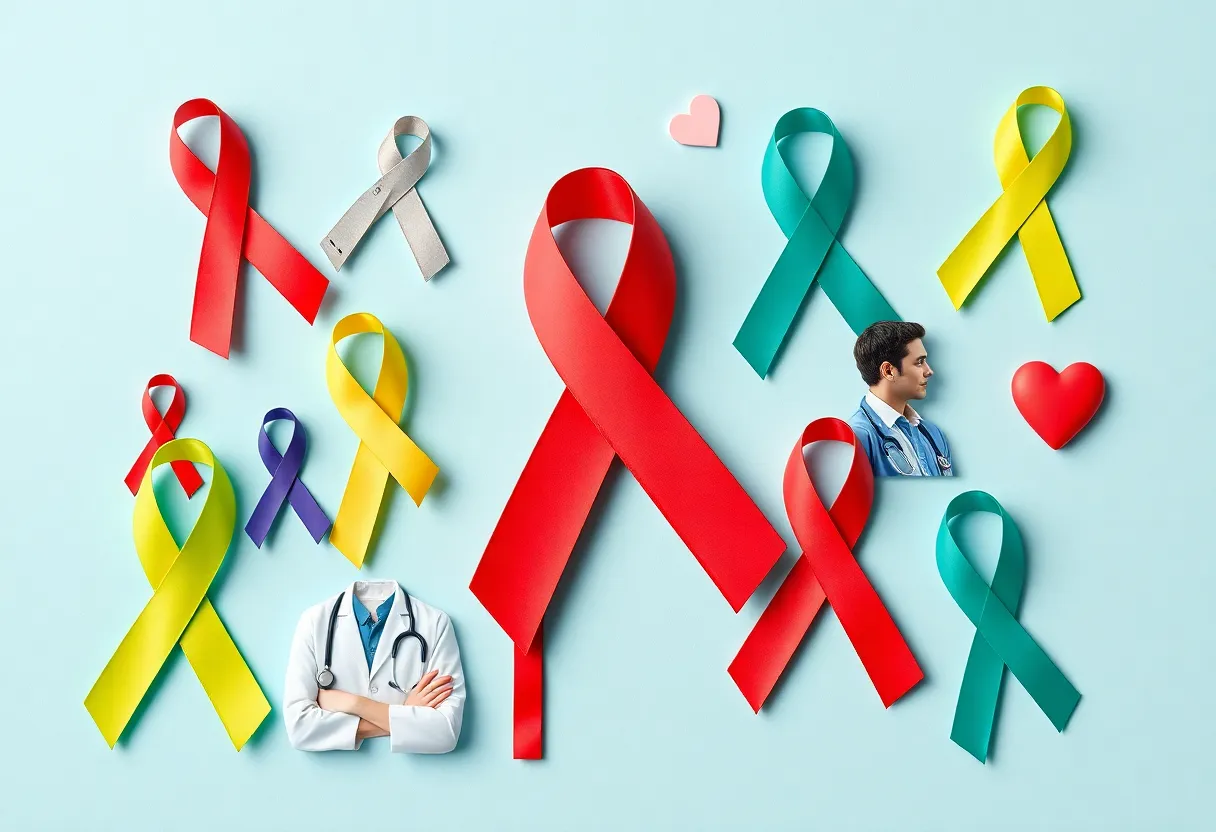News Summary
March marks Kidney Cancer Awareness Month, a time to emphasize the importance of education and awareness surrounding kidney cancer. Despite being less common, it affects roughly 81,000 people annually in the U.S. Awareness can lead to early detection, improving outcomes and encouraging supportive care for patients. This article discusses the challenges, symptoms, treatment options, and the significance of routine screenings for kidney cancer.
March Sparks Kidney Cancer Awareness
March has officially landed, and that means it’s Kidney Cancer Awareness Month! It’s an important time to shine a light on kidney cancer—a condition that, while not the most common type, still affects a significant number of people. In fact, around 81,000 new cases of kidney cancer are diagnosed every year in the United States. As a rare cancer, it often wrestles with being overlooked, but with a bit of education and awareness, there’s hope for patients navigating this journey.
Understanding the Challenges
For those facing a kidney cancer diagnosis, one of the biggest hurdles is accessing specialized care. Many patients often find themselves treated by general oncologists who may not have the latest insights on kidney cancer treatments and clinical trials. This can lead to delays in receiving the most effective treatments. Advocacy and education are crucial here; the more patients know, the better equipped they’ll be to seek out the appropriate care.
When to Be Concerned
Now, it’s vital to be aware of the signs and symptoms of kidney cancer, although one of the tricky aspects is that many symptoms don’t make an appearance until the cancer has advanced. This underscores the importance of early detection and routine screenings, especially for high-risk individuals. It’s notable that kidney cancer typically strikes those aged 45 and older, with men being at higher risk compared to women. Lifestyle factors, like smoking and unhealthy habits, play a significant role too, so making positive lifestyle choices is absolutely encouraged.
Spotting Kidney Cancer
Unfortunately, only about 9% of patients exhibit the classic trio of symptoms which include hematuria (blood in urine), abdominal pain, and a noticeable mass. However, recent years have brought some good news! There’s been an uptick in stage 1 kidney cancer diagnoses and a decline in stage 4 cases, likely due to increased use of imaging studies that catch these tumors early.
Treatment Innovations and Options
When it comes to treating kidney cancer, surgery is still considered the best route for many. But excitingly, new drugs targeting specific molecules that fuel kidney cancer are generating buzz in the medical community. Take renal cell carcinoma (RCC), for instance. It’s the third most common urologic cancer type, with an expected 80,980 new diagnoses in 2025 and unfortunately, 14,510 deaths in the same year.
For smaller tumors, less invasive options like cryotherapy or radiofrequency ablation are recommended. For elderly patients dealing with other health concerns, active surveillance might be the approach to take, rather than jumping straight into surgery. Meanwhile, modern medications like VEGF-targeted therapies and immune checkpoint inhibitors have transformed treatment strategies for advanced RCC. Some recent studies have even indicated that in specific cases, administrating sunitinib without surgery could provide similar survival rates compared to traditional surgical options.
Clinical Trials and Future Directions
Patient management involves healthy communication about side effects too—common ones can include fatigue, hypertension, and even hypothyroidism. Understanding these can greatly improve the quality of life for those affected. As research moves forward, exploring new combinations of treatments, like CAR-T therapy, is on the horizon. Additionally, participation in clinical trials is incredibly important for paving the way for innovative treatments and enhancing patient care.
Stay Vigilant!
As we step through March, let’s commit to making kidney cancer part of the conversation. Regular screenings, maintaining a healthy lifestyle, and staying informed about treatment advancements can lead to better outcomes for kidney cancer patients. Awareness isn’t just awareness—it can save lives! So let’s band together, support those in need, and push forward in the fight against kidney cancer.
Deeper Dive: News & Info About This Topic
HERE Resources
Additional Resources
- Cure Today: Patient Advocate Highlights Kidney Cancer Awareness
- Wikipedia: Kidney Cancer
- WIFR: UW Health Oncologist Shares Signs & Symptoms of Kidney Cancer
- Google Search: Kidney Cancer Symptoms
- WTNH: Therapeutic Vaccine for Kidney Cancer Shows Positive Results
- Google Scholar: Kidney Cancer Treatment Advancements
- Click Orlando: Man Defies Stage 4 Renal Cancer
- Encyclopedia Britannica: Kidney Cancer
- Arbiter: Teammates Find Strength in Battle Against Kidney Cancer
- Google News: Kidney Cancer







